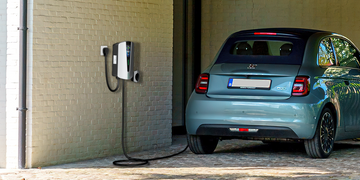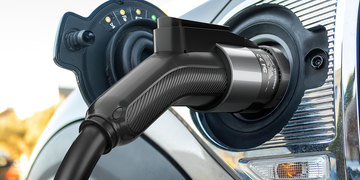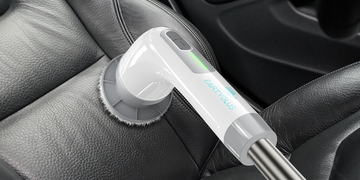How much does EV Charging cost in the US? Public charging systems that charge based on kWh average anywhere between $0.30 and $0.60 per kWh compared to $0.16 per kWh at home. The exact amount depends on local electricity cost and regulations, as well as the type of charger.
As electric vehicles (EVs) become increasingly popular, one of the pressing questions on many drivers' minds is: How much does EV charging cost in the US? The answer to this question is multifaceted, influenced by various factors ranging from location and charging speed to pricing structures and electricity rates. Let's delve into the details to gain a clearer understanding of the economics of EV charging in the United States.
Public Charging Stations: Pay-Per-Use and Subscription Plans
Public EV charging stations are a common sight in cities, suburbs, and along highways, offering drivers the convenience of recharging their vehicles while on the move. These stations typically operate on a pay-per-use basis, with users paying a fee for each charging session. The cost per session can vary depending on factors such as the charging speed (e.g., Level 2 or DC fast charging) and the provider.
Additionally, many charging networks and providers offer subscription plans or membership programs that provide users with discounted rates, access to exclusive charging locations, or other perks. Subscription plans may involve a monthly fee in exchange for lower charging rates or other benefits, appealing to frequent users who rely on public charging infrastructure.
Costs of Home Charging: Understanding Electricity Rates
Home charging is a convenient and cost-effective option for many EV owners, allowing them to replenish their vehicle's battery overnight or whenever convenient. The cost of home charging depends primarily on electricity rates, which vary depending on factors such as location, utility provider, and time of use.
Most utilities charge residential customers for electricity based on kilowatt-hours (kWh) consumed. The average residential electricity rate in the US hovers around $0.13 to $0.20 per kWh, although rates can be significantly higher or lower in certain regions. Charging an EV typically requires anywhere from 15 to 50 kWh for a full charge, depending on the vehicle's battery capacity and charging speed.
To estimate the cost of home charging, EV owners can multiply the kWh consumed by the electricity rate. For example, charging a vehicle with a 50 kWh battery at a rate of $0.15 per kWh would cost approximately $7.50 for a full charge. Some utilities offer special EV charging rates or incentives, such as discounted electricity rates during off-peak hours, further reducing the cost of home charging.
Telgeoot level 2 electric vehicle charger charging costs
Telgeoot level 2 EV Charger has been equipped with multiple safety protections, Over Voltage protection, Overload protection, Short Circuit protection, Ground protection, Earth Leakage protection. This ev charging station unit can operate in environments of -30℃ to 55℃ (-22°F to 131°F). The connector operating life is up to 10000 times. Allows to adjust charging current range from 1 to 48A, level 2 EV 240V 11kw home charger can work 7X faster than a normal Level 1 chargers, Say goodbye to long charging times.
To estimate the charging cost with a Level 2 charger, you'll need to consider the following:
Electricity Rates: Check with your utility provider to determine the cost per kilowatt-hour (kWh) of electricity in your area. Residential electricity rates typically range from $0.10 to $0.30 per kWh, but actual rates may vary based on location and time of use.
Charger Efficiency: Level 2 chargers typically have an efficiency rating, which indicates how much energy is lost during the charging process. Higher efficiency chargers will result in lower energy losses and therefore lower charging costs.
Vehicle Battery Size: The size of your vehicle's battery, measured in kilowatt-hours (kWh), will determine how much energy is needed to charge it fully. EVs with larger batteries will require more electricity to charge compared to those with smaller batteries.
Once you have this information, you can calculate the charging cost using the following formula:
ChargingCost=EnergyNeeded(kWh)×ElectricityRate(perkWh)
For example, let's say you have an EV with a 60 kWh battery and you're charging it from empty to full using a Level 2 charger with an efficiency of 90%. If your electricity rate is $0.15 per kWh, the calculation would be as follows:
EnergyNeeded=60kWh×(100%/90%)=66.67kWh
Charging Cost = 66.67 kWh \times $0.15/kWh = $10.00
So, in this example, it would cost approximately $10.00 to fully charge your EV using a Level 2 charger with a $0.15 per kWh electricity rate.
Keep in mind that actual charging costs may vary based on factors such as charger efficiency, electricity rates, and any additional fees charged by charging networks or providers. It's also worth considering any incentives or special electricity rates for EV charging that may be available in your area.
News-Telgeoot EV Charging Station
How much does EV charging cost in the US?





